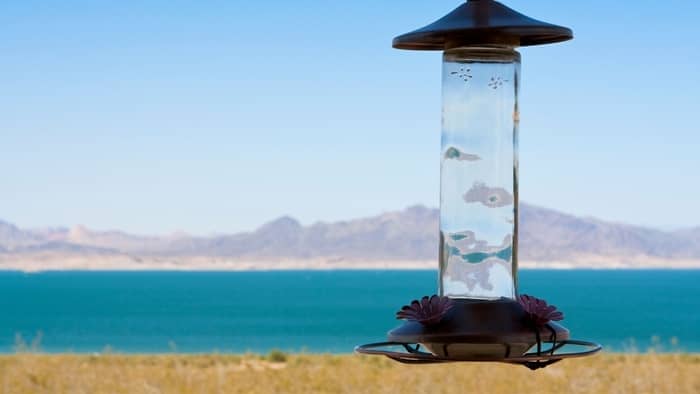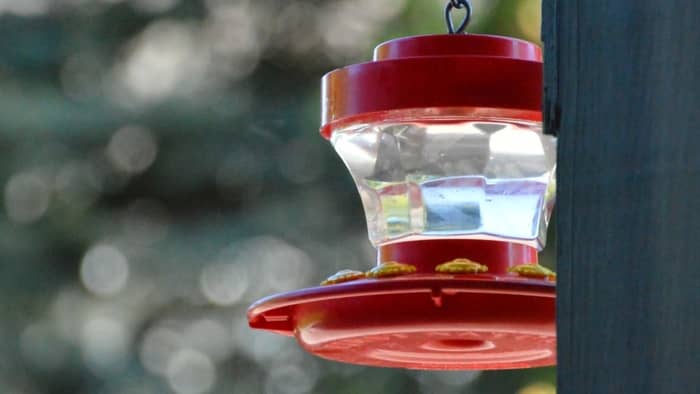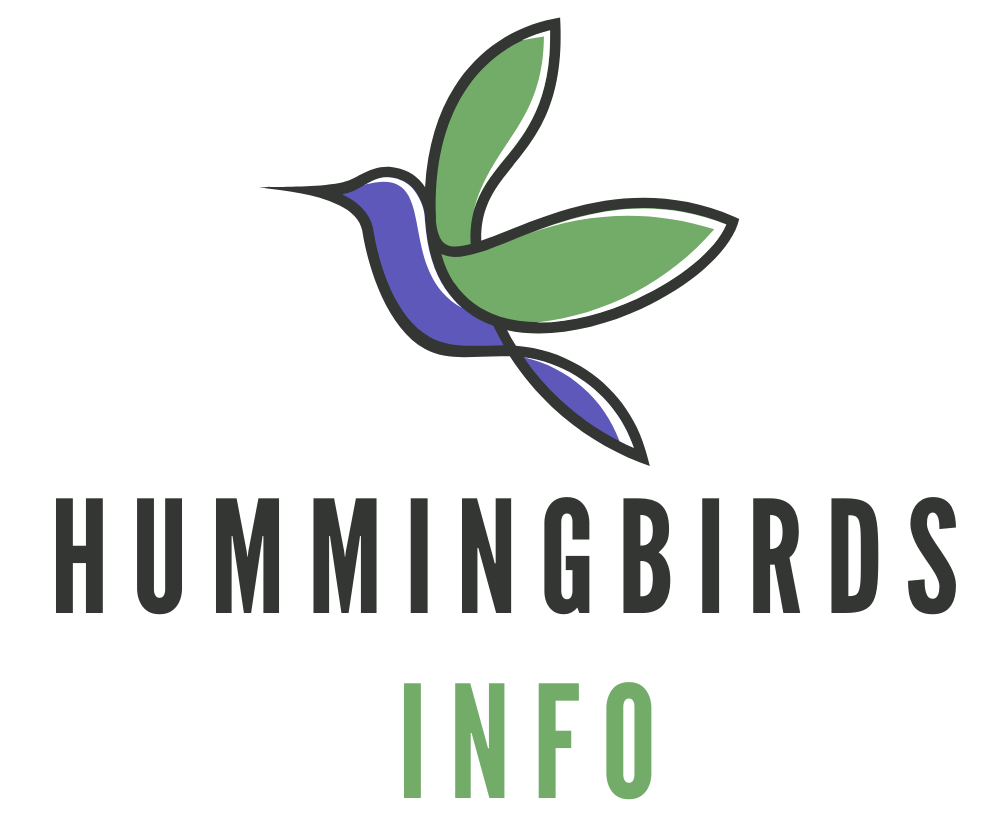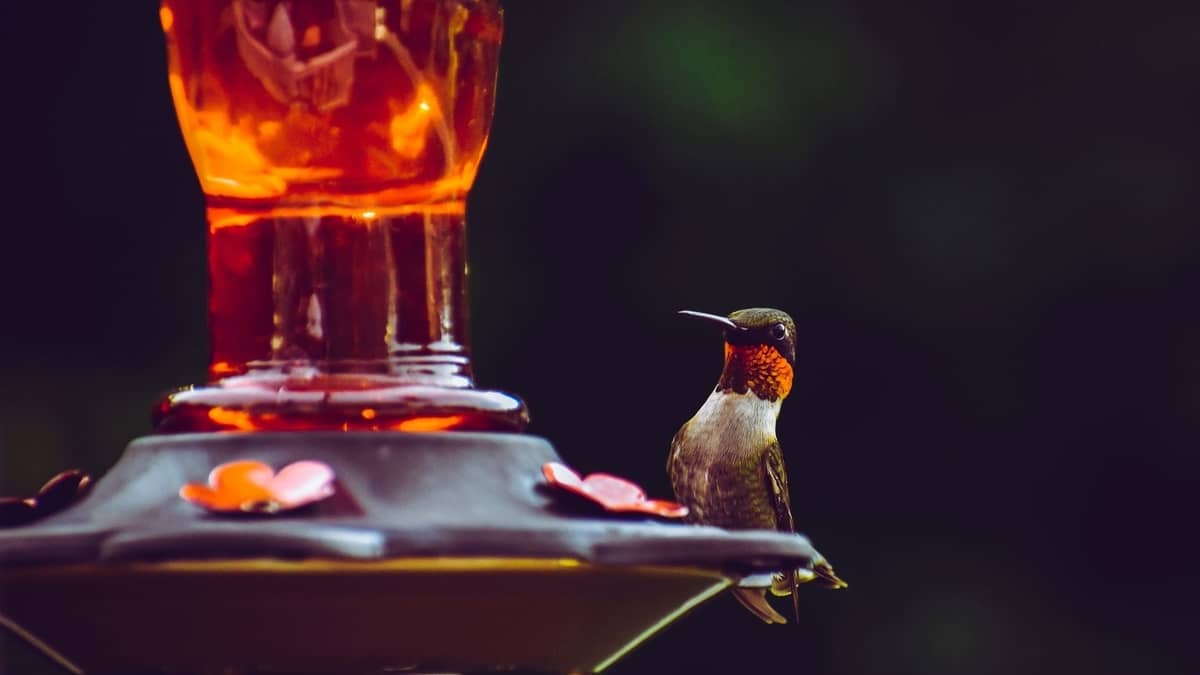When to quit feeding hummingbirds is the question that we will be discussing today. The hummingbird is one of the most captivating birds to watch. It’s a great delight watching these charming birds buzz around your yard.
During hummingbird season, many people indulge in setting up feeders in their garden so they can have these lovely birds feed and hover around their vicinity. However, there are specific periods you should put out your feeders and take them down.
So, let’s talk about when to quit feeding your hummingbirds.
Hummingbird Season
Hummingbirds have their season and it’s usually in spring. These birds will migrate to our side during their season for nesting, feeding, and breeding. Then they will depart around fall to migrate to Mexico or Central America to spend winter.
It is during their season we put out our hummingbird feeders to attract these iridescent birds to our yard.
Various states have slightly different dates of hummingbird arrival and departure. While in some states, some of these birds can remain all year round. In the United States, species such as Anna’s hummingbird and Buff-bellied hummingbird are all year-round habitants around the southern desert and warm coastal areas.
What Are Hummingbird Feeders?
Hummingbird feeders are artificial nectar food used to attract these sweet birds to our yard. The feeders are strategically placed or hung around, it entices these birds and you can get to observe them up close.
Simply ensure you place your feeders in the strategic and appropriate position for these sweet birds to get access to them. Also, maintain a clean and healthy feeder and replace them at the appropriate time. Then your yard can become a hotspot for them to continue visiting and feeding.

When Do You Take Down Hummingbird Feeders?
Different questions might be buzzing through your mind about hummingbird feeders. Question such as when do you take hummingbird feeders down. The answer may slightly vary depending on where you reside. However, we can follow the general guide to estimate when to quit feeding hummingbirds.
Towards the end of hummingbird’s season, they tend to feed more because they need to gather fat to migrate. So, getting the appropriate time to quit feeding hummingbirds is important so they don’t go hungry and they have enough fat to gather for their journey.
Let’s take a look at what to consider when deciding on when to quit feeding hummingbirds:
· Migration: When To Quit Feeding Hummingbirds
One way to decide when to quit feeding hummingbirds is to find out their migration period in your region. Generally, the male hummers migrate before the female then the young birds will migrate last.
· Location
If your location is in the northern region, you can quit feeding hummingbirds earlier in the fall. Birders in the northernmost around Alaska and Canada may stop feeding hummers around late summer. Hummingbirds lovers around the southern region can stop feeding hummers around late fall.
Then regions where we have all year round hummingbird inhabitants or late migrants, you can leave your feeders up throughout the year.
· Climate
Climate is another determining factor on when to stop feeding hummingbirds. If summer flowers die quickly or your area usually experiences early autumn storms, we recommend you leave your feeder up for longer. This way, you will be supplying these lovely birds with dependable food sources when other natural food sources are diminishing.
Also, if you notice the flower crops in your region are very poor or substandard, we encourage you to put up your feeders so these hummingbirds can have a reliable food source.
· Other considerations
You should keep in mind that migrating hummingbirds of different species may stop by and pass through your yard. Therefore, you may want to keep your feeders up a little late if you’re still noticing a few of these rare or accidental hummingbird visitors. This way, these lovely birds can still have some reliable food sources to feed on.
However, when their migration period is elapsing in your region and you have not noticed any hummingbirds in about two weeks, you can then take your feeder down.

When Do You Stop Feeding Hummingbirds?
Ideally, you can quit feeding hummingbirds starting from fall. Also, you can stop feeding them when you have stopped noticing any bird pass by at least two weeks after the estimated migration period of your region.
Does Keeping Feeders Up Delay Hummingbird Migration?
Deciding to extend keeping your feeders up does not have anything to do with delaying their migration. Different factors prompt hummingbird migration and one significant factor is the day length trigger. Once the days begin to grow shorter starting from late summer, these birds start to feel uneasy and begin to migrate south.
Also, it is pretty helpful keeping your feeders up late. This is because any straggler that has lost its way or requires refueling can feed to add up some energy to continue its journey.
Additional Say On When To Quit Feeding Hummingbirds
When to quit feeding hummingbirds will mainly depend on their migration or departure period of different regions. However, a general guide estimates the hummingbird departure period to begin from late summer to late fall.
Also, you can stop feeding hummingbirds once you’ve stopped seeing any of these birds visiting in around two weeks after their estimated departure period. We also recommend you keep your feeders up even during late fall just in case a straggler needs to gather additional energy to continue its migration.
In all this, always putting out your feeders at the appropriate time for these birds to feed on nectar can make these birds remember your location whenever they return year after year.
So this will make your yard a hotspot that allows you to always observe these radiant birds. Therefore, we recommend you always leave your feeders up especially throughout the peak of their migration period.
Read more about When Do Hummingbirds Return To Ohio.

